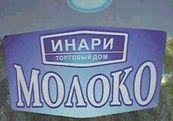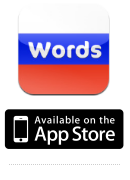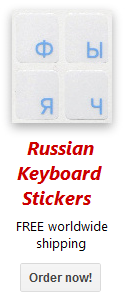 FR FR |
About us | Home | User agreement | Link to us |
"To Be" vs. "To Have" in Russian
Linguists have noticed that all languages could be divided into two categories: "to have" languages and "to be" languages.
"To have" languages are mostly European languages such as English, German and French. They use the verb "to have" to express an idea of possession, as in "I have a car" or "He has a brother".
"To be" languages are presented by Russian, Japanese and others which say about possession as quality or even location. For instance, Russians normally use structures like что-то у кого-то есть (there is smth. at smb.) or что-то где-то есть (there is smth. somewhere) to express possession. A possessor is passive in the languages of a "to be" group.
To Have
Though there is the verb "to have" (иметь) in Russian, it is rarely used to designate possession. Instead, Russian uses the preposition y (at) followed by the genitive, plus the word есть (is/are), plus the possessed object at the nominative.Examples:
У меня есть ключ.
I have a key.
Literally: At me there is a key.
У сестры есть
кошка.
The sister has a cat.
Literally: At the sister's there is a cat.
У тебя есть
компьютер?
Do you have a computer?
Literally: Is there a computer at you?
To Be
Russians omit the verb "to be" (быть) in the present tense.Examples:
Я учитель.
I am a tutor.
Literally: I -- tutor.
Мне холодно.
I am cold.
Literally: Cold to me.
At the same time, "to be" is used in the future and past tense:
Examples:
Я буду читать
книгу.
I will read the book.
Я был в театре.
I was at the theatre.
Got questions?
Ask them in the Russian Questions and Answers — a place for students, teachers and native Russian speakers to discuss Russian grammar, vocabulary, pronunciation, and other aspects of the Russian language.
Copyright 2001-2026 MasterRussian.com | Privacy Policy | Contact Us
 Russian Lessons
Russian Lessons
- Russian alphabet
- Names of letters
- Russian Q&A new
- Pronunciation: Cons.
- Pronunciation: Vowels
- Noun Gender/Number
- Cases of Nouns
- Russian Greetings
- Personal Pronouns
- Learning Russian
- 1000 Common Words
- 500 Russian Verbs
- Top Russian Nouns
- » All lessons
- » Guest lessons
 Browse Topics
Browse Topics
- Start learning Russian
- Forum
- Bookstore
- Dictionaries
- Russian - basic
- Russian - adv
- Pronunciation
- Russian Blog new
- Reading
- Test & quizzes
- Translation
- Verbs
- Verb Conjugations
- Russian numbers
- Russian Tests new
- Vocabulary
- Writing
- Folk music
- Fun stuff
- Leo Tolstoy
- Learner's lore
- Literature
- Personal blogs
- Picture Dictionary new
- Proverbs
- Publications
- Radio & TV
- Russian culture
- Schools in Russia
- Russian Words
- Russian names
- Software
- Russian Words iPhone
Clicks the "Like" button below to get daily updates on Facebook!
Click "Add to circles" to learn Russian on Google+

Search MasterRussian

English » Russian dictionary

WORD OF THE DAY
![]() RSS
|
iGoogle
|
My Yahoo!
RSS
|
iGoogle
|
My Yahoo!
Meaning: now, nowadays, today
Pronunciation: [tee-PYEHR']
Learn Russian words! »
TODAY'S STREET SIGN

Russian: Молоко
English: Milk
FOLLOW US ON TWITTER

MasterRussian on Twitter


